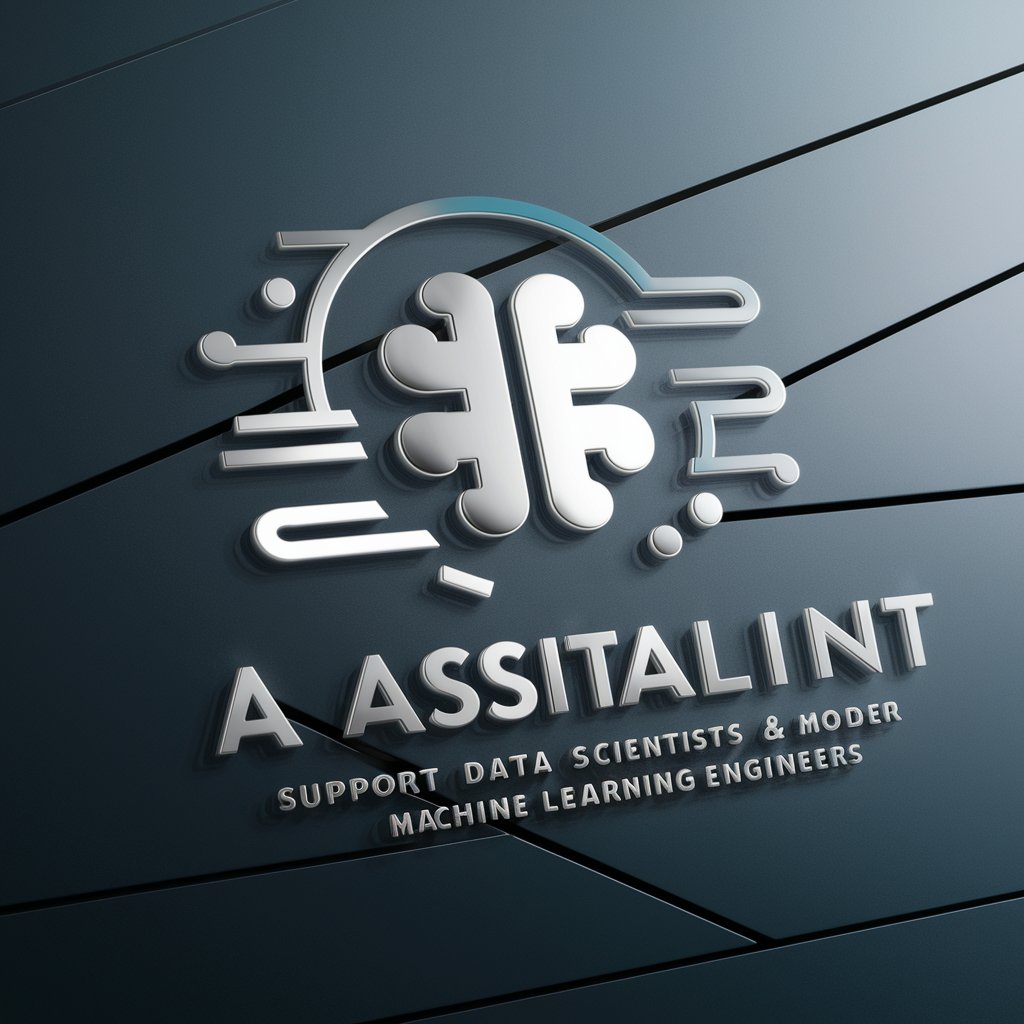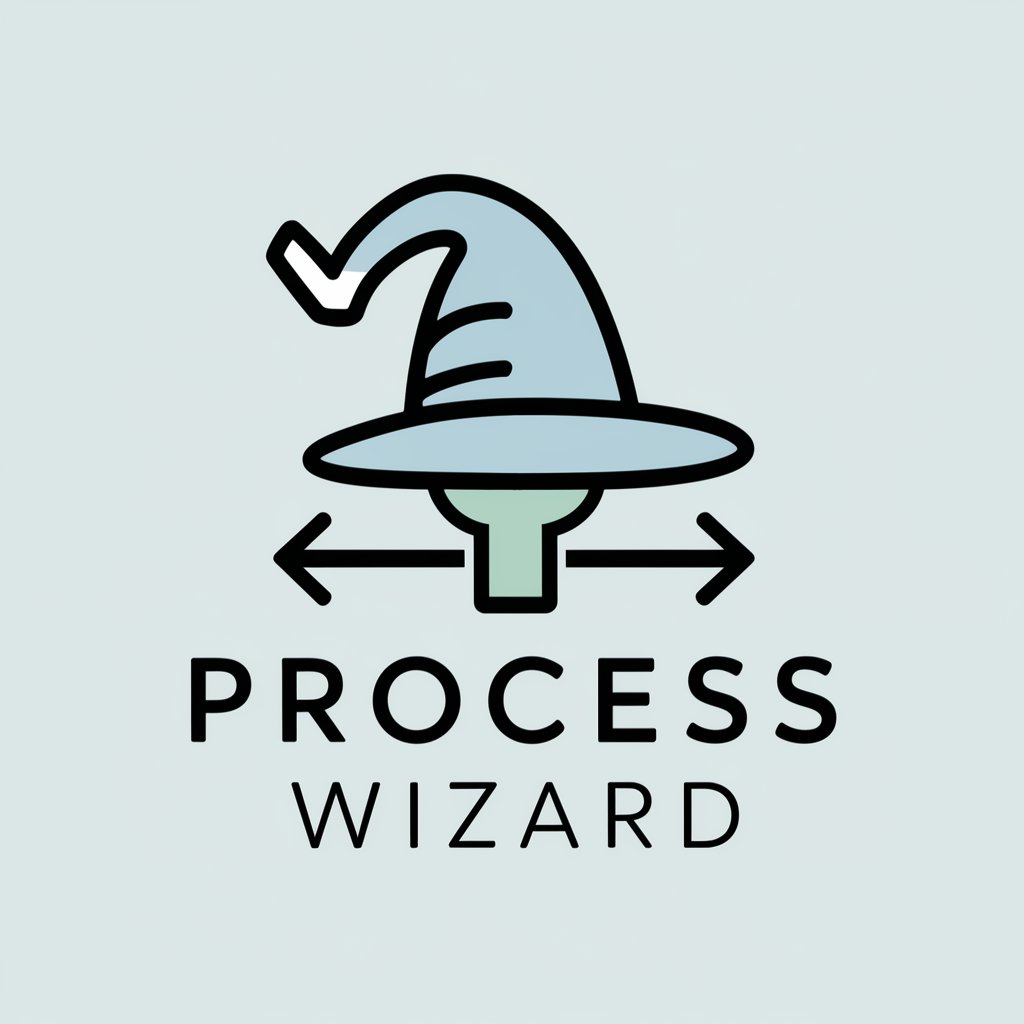Machine Learning Engineer - ML Engineer Assistance

Hello! How can I assist with your machine learning project today?
Empower Your ML Projects with AI
Explain the concept of overfitting in machine learning and how to prevent it.
What are the best practices for feature engineering in a time series dataset?
How can I improve the performance of my random forest model?
Describe the steps involved in hyperparameter tuning for a neural network.
Get Embed Code
Introduction to Machine Learning Engineer Assistant
The Machine Learning Engineer Assistant is a specialized AI tool designed to support data scientists and machine learning engineers throughout the various stages of model development and deployment. This assistant aims to streamline the process of machine learning model creation, from conceptualization to implementation, by providing guidance on model selection, feature engineering, hyperparameter tuning, data preprocessing, code debugging, and strategies for performance improvement. It is equipped to offer explanations of complex machine learning concepts in a clear and understandable way, thereby enhancing the user's understanding of these principles. For example, if a user is working on a predictive modeling project involving high-dimensional data, the assistant can suggest dimensionality reduction techniques and appropriate models that handle such data efficiently. In another scenario, if a user struggles with overfitting, the assistant can recommend regularization techniques or model validation strategies to improve generalization. Powered by ChatGPT-4o。

Main Functions of Machine Learning Engineer Assistant
Model Selection
Example
Recommending a convolutional neural network (CNN) for image classification tasks.
Scenario
A user working on digit recognition from images may be guided to use CNNs due to their proficiency in capturing spatial hierarchies in images.
Feature Engineering
Example
Advising on creating polynomial features for a regression model.
Scenario
In a scenario where a user's dataset has non-linear relationships, the assistant can suggest creating polynomial features to better capture these complexities.
Hyperparameter Tuning
Example
Guiding the use of grid search to find optimal hyperparameters for a support vector machine.
Scenario
When a user needs to optimize a support vector machine for classification, the assistant can explain how to implement grid search to experiment with different hyperparameter combinations for the best performance.
Data Preprocessing
Example
Recommending normalization and missing data imputation techniques.
Scenario
For a user with a dataset that has features on different scales and missing values, the assistant can advise on normalizing data for uniformity and imputing missing values to maintain dataset integrity.
Code Debugging
Example
Assisting in resolving errors in TensorFlow model implementation.
Scenario
If a user encounters runtime errors while implementing a TensorFlow model, the assistant can help identify the source of the error and suggest corrections.
Performance Improvement
Example
Suggesting the use of ensemble methods to improve model accuracy.
Scenario
For a user whose model is underperforming, the assistant can recommend exploring ensemble methods like Random Forests or Gradient Boosting to enhance prediction accuracy.
Concept Explanation
Example
Explaining the concept and importance of cross-validation in model evaluation.
Scenario
A user new to machine learning might not understand how to properly evaluate their model. The assistant can explain the process and importance of using cross-validation techniques to ensure the model's effectiveness across different subsets of data.
Ideal Users of Machine Learning Engineer Assistant Services
Data Scientists and Machine Learning Engineers
Professionals involved in data analysis, predictive modeling, and algorithm development. They benefit from the assistant's ability to suggest best practices, optimization techniques, and debugging help, thus accelerating the model development process.
Academic Researchers
Individuals in academia working on machine learning projects for research purposes. They can leverage the assistant to understand complex algorithms, explore various modeling techniques, and enhance their research outcomes.
Students Learning Machine Learning
Students pursuing courses in machine learning or artificial intelligence who need guidance on projects, clarification of concepts, or assistance with assignments. The assistant acts as a supplementary educational tool, enhancing their learning experience.
Industry Professionals
Professionals in industries such as finance, healthcare, or technology, looking to apply machine learning to solve business problems. The assistant can guide them through the process of selecting the right models, preprocessing data, and improving model performance to ensure the successful deployment of machine learning solutions.

How to Use Machine Learning Engineer
Initiate Your Journey
Begin by accessing a platform offering Machine Learning Engineer capabilities, such as visiting a specific website for a hassle-free trial that does not require login credentials or a subscription.
Define Your Objectives
Clarify your machine learning project goals, whether it's model selection, data preprocessing, feature engineering, or performance optimization. Understanding your objectives will help tailor the tool to your needs.
Prepare Your Data
Ensure your data is ready for analysis. This might involve collecting, cleaning, and formatting data. Having your data in an accessible and analyzable format is crucial for effective machine learning.
Engage with the Tool
Utilize the tool's features for your specific needs. This could include entering queries, uploading datasets, or requesting code debugging. Take advantage of the guidance and suggestions provided.
Iterate and Optimize
Use feedback and results from the tool to refine your models and approaches. Iteration is key in machine learning projects for achieving optimal performance and meeting project objectives.
Try other advanced and practical GPTs
Process Wizard (by Tim Yewchuk)
Simplify Workflows with AI

Bloom's Reading Comprehension
Elevate Your Reading Skills with AI

EyesightIQ
Revolutionizing eyecare with AI intelligence

Creativity Companion
Unleash creativity with AI-powered insights

Oxford Union Debating GPT
Elevate debate skills with AI-powered engagement

🌟 Coach Amanda 🌟
Empowering Personal Transformation with AI

Your Adventures in Wonderland
Dive into Wonderland's whimsical dialogues.

方法论专家 Methodology Expert
AI-powered methodology and operational advice

!Brain Coach AI: Your ADHD Neurology Expert
Empowering ADHD Management with AI

History of Atlantis
Unlocking Atlantis with AI

Global Diplomacy Navigator
Navigating Global Diplomacy with AI

Research Daddy
Empowering Research with AI

Machine Learning Engineer Q&A
What types of machine learning models can Machine Learning Engineer assist with?
Machine Learning Engineer can provide guidance on a wide range of models, including supervised learning models like linear regression and deep neural networks, unsupervised learning models like k-means clustering, and reinforcement learning setups.
How does Machine Learning Engineer help with feature engineering?
It offers advice on creating new features that can improve model performance, including techniques for feature extraction, selection, and transformation based on the specific characteristics of your data.
Can Machine Learning Engineer assist with hyperparameter tuning?
Yes, it provides guidance on tuning hyperparameters to optimize model performance, including suggestions on search strategies such as grid search, random search, and Bayesian optimization techniques.
In what ways can Machine Learning Engineer improve data preprocessing?
It advises on various data preprocessing techniques, such as handling missing values, normalizing or standardizing data, and encoding categorical variables, tailored to your dataset's needs.
Does Machine Learning Engineer offer debugging support for model development?
Yes, it assists with debugging code related to machine learning model development, helping identify and resolve issues in your code or model setup.
